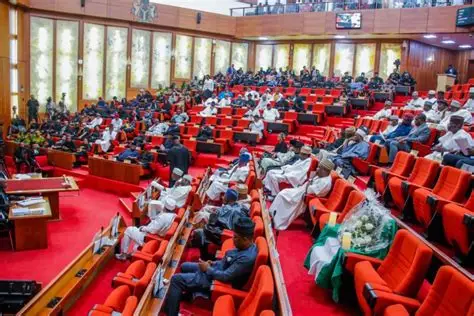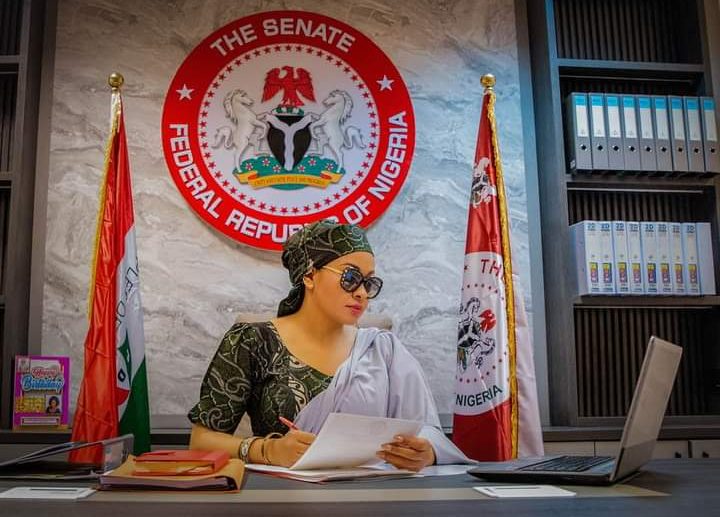
In a rare twist that underscores the power of public opinion over political maneuvering, the Nigerian Senate has reversed itself on one of its most controversial decisions in recent months—allowing Senator Natasha Uduaghan Akpoti back into the Red Chamber. What changed? Pressure, law, and the people’s voice.
Akpabio-Led Senate Finally Lifts Senator Natasha’s Suspension

The Nigerian Senate has lifted the suspension of Senator Natasha Uduaghan Akpoti, reopening her office and restoring her full rights as a duly elected legislator. The decision comes after weeks of uncertainty, public outcry, and legal tussles surrounding her controversial six-month suspension.
Senator Natasha, who represents Kogi State in the National Assembly, had completed her suspension term two weeks ago. Yet, the Senate leadership initially insisted she would not be allowed to resume duties, citing ongoing court cases as justification. This stance sparked criticism from Nigerians who saw the decision as an affront to democracy and the will of the electorate.
But in a dramatic turnaround, the Godswill Akpabio-led Senate reversed course. By unsealing Natasha’s office and granting her access, the leadership effectively acknowledged the need to align with constitutional provisions and the mood of the people.
For many observers, this was not just a legal correction but a political necessity. The Senate, as an institution, thrives on public trust and legitimacy. Prolonging Natasha’s exclusion after her suspension had expired risked painting the chamber as vindictive and authoritarian.
Analysts argue that the reversal demonstrates how the Senate cannot completely insulate itself from the weight of public opinion. In an age where citizens are more engaged, social media amplifies voices, and civil society keeps watch, legislative excesses are swiftly challenged. The Natasha case became a litmus test for how the Senate would balance internal discipline with democratic accountability.
Furthermore, the development highlights a recurring theme in Nigeria’s politics: the tension between power play and the principles of justice. While the Senate has the authority to discipline its members, such powers are not absolute. They must be exercised within the framework of the constitution and with respect for the mandate freely given by the people.
In lifting the suspension, the Senate avoided what could have spiraled into a full-blown constitutional crisis. A refusal to reinstate Natasha would have meant denying Kogi constituents their right to representation, potentially setting a dangerous precedent where political disagreements override the sovereignty of the ballot.
The episode also reinforces the role of the judiciary in safeguarding democratic values. By pointing to court cases as a reason for delay, the Senate inadvertently acknowledged that its own decisions are subject to legal scrutiny. In a democracy, no arm of government is above the law—not even the legislature.
As Natasha resumes her duties, the spotlight will be on her ability to rise above the controversy and refocus on delivering for her constituents. Her suspension may have temporarily silenced her voice in the chamber, but it has arguably amplified her profile in the national political conversation. For many Nigerians, she now embodies resilience against political suppression.
The Senate, on its part, must take lessons from this episode. Leadership is not about flexing authority but about exercising restraint, fairness, and accountability. By bowing to public pressure and legal realities, the Akpabio-led Senate has, in the end, chosen the path of democracy.
This outcome may not erase the initial missteps, but it signals that the people’s voice still matters in Nigeria’s democracy. And that, perhaps, is the bigger victory.
